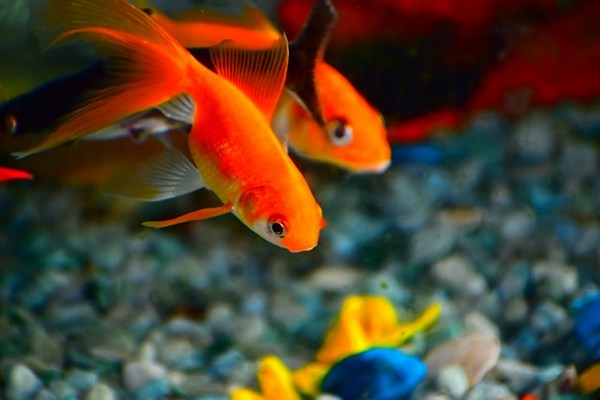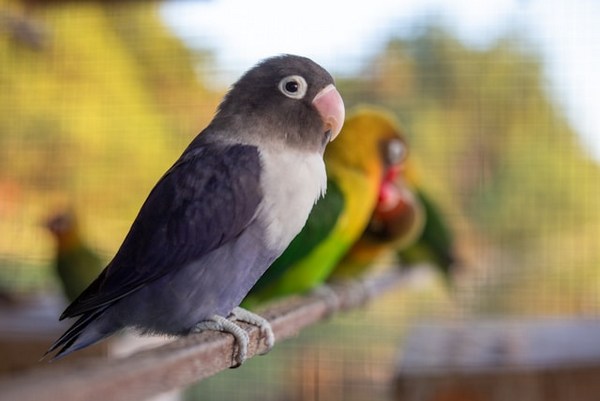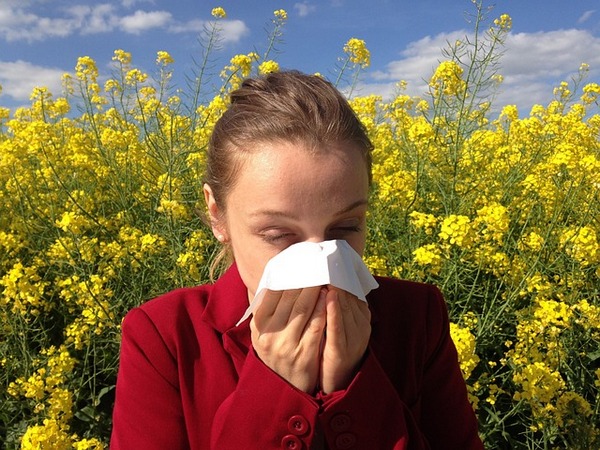Key Highlights
- Hypoallergenic pets are great for people with pet allergies, as they produce fewer allergens like dander, saliva, and proteins that can trigger symptoms.
- Hypoallergenic pets allow allergy sufferers to enjoy companionship without constant allergy symptoms.
- These pets have less dander and allergens, making them suitable for individuals with allergies.
- Note that hypoallergenic pets may not completely eliminate allergic reactions in some individuals.
- Regular grooming and cleaning can help minimize allergens and create a healthier living space.
- Consulting with an allergist is essential when choosing the right allergy-friendly pet for your family.
Table of Contents
Allergies to pet dander, saliva, and urine can cause symptoms such as sneezing, itching, watery eyes, and even asthma attacks in sensitive individuals.
However, there is still hope for those with allergies who dream of having a furry friend.
Allergy-Friendly Companions
1. Hypoallergenic Dogs: Breeds for Sensitive Owners

While no dog is completely hypoallergenic, some breeds are known to produce fewer allergens and cause fewer allergic reactions in sensitive individuals.
- Bichon Frise: These small, fluffy dogs have a curly coat that doesn’t shed much, making them a popular choice for allergy sufferers.
- Portuguese Water Dog: Known for their waterproof coat, Portuguese Water Dogs produce less dander and have a hypoallergenic coat that is less likely to trigger allergies.
- Soft Coated Wheaten Terrier: With a soft, silky coat, Wheaten Terriers have hair instead of fur. They shed minimally and produce less dander, making them a good option for allergy sufferers.
Spend time with the dog breeds you’re considering before bringing one home to ensure that you don’t have an allergic reaction.
2. Feline Friends: Low-Allergen Cat Breeds

Certain cat breeds are considered low-allergen and may suit individuals with cat allergies. These breeds produce less dander, saliva, and urinary allergens, the primary triggers for allergic reactions.
- Devon Rex: Known for their curly coat, Devon Rex cats produce less dander and shed less hair, making them a good option for allergy sufferers.
- Russian Blue: With their short, dense coat, Russian Blue cats produce fewer allergens and are often considered hypoallergenic.
- Siamese: Siamese cats have a short coat and produce less dander, which can make them a suitable choice for individuals with allergies.
Even with low-allergen cat breeds, it’s important to spend time with the cat before bringing one home to ensure that you don’t have an allergic reaction.
3. Aquatic Companions: Fish and Their Allergy-Friendly Appeal

Fish are known to be allergy-friendly pets as they do not produce dander, saliva, or urinary allergens that can cause allergic reactions in sensitive individuals.
They are also easy to care for and can be a great way to introduce children to the responsibilities of pet ownership.
- Aquarium: Keeping fish in an aquarium significantly reduces the risk of allergen exposure as there is no direct contact with the fish or their waste.
- Fewer problems: Fish do not shed fur or dander, eliminating the risk of allergy symptoms such as sneezing and itching.
- Great way to teach responsibility: Taking care of fish requires regular feeding and cleaning of the aquarium, which can be a great way to teach children about responsibility and pet care.
4. Feathered Friends: Birds That Won’t Make You Sneeze

Birds can be wonderful companions for individuals with allergies as they do not produce fur, dander, or saliva allergens that can trigger allergic reactions.
- Fewer allergens: Birds do not produce the same allergens as mammals, making them a suitable choice for individuals with allergies.
- Companionship: Birds are known for their intelligence and ability to form strong bonds with their owners, providing companionship and entertainment.
5. Reptilian Pets: Low Maintenance and Allergy-Friendly
Reptiles, such as snakes, lizards, and turtles, do not produce dander or saliva allergens that can trigger allergic reactions.
- Hypoallergenic: Reptile pets, such as snakes and lizards, are hypoallergenic as they do not produce the same allergens as mammals.
- Low maintenance: Reptiles have relatively simple care requirements and do not require daily walks or grooming like dogs or cats.
- Variety: There is a wide variety of reptiles available as pets, offering great options for individuals with different preferences and lifestyles.
6. Small Mammals: Rodents That Could Be Your Next Pet

Small mammals, such as guinea pigs, hamsters, and gerbils, can be great options for individuals with allergies.
- Less Surface Area: Small mammals like guinea pigs, hamsters, and gerbils have smaller bodies and produce fewer allergens compared to larger pets.
- Companionship: These small mammals can provide companionship and entertainment, particularly for individuals living in apartments or small spaces.
- Allergy-friendly: While no pet is completely allergy-free, small mammals are generally considered to be allergy-friendly pets.
Understanding Hypoallergenic Pets
The term “hypoallergenic” refers to pets that produce fewer allergens, such as dander, saliva, and urine, which can trigger allergic reactions in sensitive individuals.
What Does Hypoallergenic Mean?
There is no such thing as a completely hypoallergenic pet.
Hypoallergenic pets are breeds or species that produce fewer allergens, such as dander, saliva, and urine, compared to other pets.
Misconceptions About Hypoallergenic Pets
- Hypoallergenic pets will not cause any allergic reactions: While hypoallergenic pets produce fewer allergens, they can still cause allergic reactions in sensitive individuals.
- Allergy symptoms will disappear completely with a hypoallergenic pet: While allergy symptoms may be reduced with hypoallergenic pets, they may not disappear completely, and individual reactions can vary.
- Allergy-friendly pets are completely allergy-free: No pet is completely allergy-free, and individual sensitivities can vary.
Preparing Your Home for an Allergy-Friendly Pet
Here are some cleaning tips and practices to consider when preparing your home for an allergy-friendly pet:
- Regular vacuuming and dusting can help remove pet dander and other allergens from your home.
- Washing your pet’s bedding regularly can help minimize the presence of pet allergens in your home.
- Regular grooming and bathing of your pet can help reduce the amount of dander and allergens they produce.
Cleaning Tips to Minimize Allergens
- Vacuum your home regularly, paying special attention to carpets, rugs, and upholstery where pet dander can accumulate.
- Dust furniture and other surfaces with a damp cloth to prevent allergens from becoming airborne.
- Wash pet bedding, blankets, and other fabric items regularly to remove pet dander and allergens.
- Use air purifiers with HEPA filters to help remove pet allergens from the air.
- Keep your home well-ventilated to reduce the concentration of allergens.
Pet Grooming and Care for Reducing Allergies
- Regular bathing of your pet can help remove allergens from their coat and reduce the amount of dander they produce.
- Brushing your pet’s coat regularly can help remove loose hair and reduce shedding.
- Keeping your pet’s living area clean and well-maintained can help minimize the accumulation of allergens.
- Regular veterinary care, including vaccinations and parasite prevention, is important for maintaining your pet’s overall health and reducing the risk of allergies.
Conclusion
Choosing an allergy-friendly pet can significantly impact your quality of life. From hypoallergenic dog breeds to low-allergen cat varieties, there are options for every animal lover. Keep your living space clean and well-maintained to minimize allergens and create a happy environment for both you and your new companion. Make an informed decision, considering your family’s needs and lifestyle, to welcome a furry, scaly, or feathery friend into your home.
Frequently Asked Questions
Can Someone with Severe Allergies Have a Pet?
Yes, someone with severe allergies can still have a pet. However, it’s important to work closely with an allergist to identify the specific allergens that trigger your allergies and determine which hypoallergenic pets may be suitable for your condition. An allergist can provide guidance and help you choose the right pet that is allergy-friendly and compatible with your allergies.
Are There Any Truly Hypoallergenic Pets?
There is no such thing as a truly hypoallergenic pet. While some pets are considered hypoallergenic because they produce fewer allergens, no pet is completely allergen-free. The term “hypoallergenic” refers to pets that are less likely to trigger allergies in sensitive individuals, but individual reactions can still vary.
How Do I Choose the Right Allergy-Friendly Pet for My Family?
Choosing the right allergy-friendly pet for your family involves considering factors such as individual allergies, family members’ preferences, and lifestyle. Consulting with an allergist and spending time with different hypoallergenic pets can help you make an informed decision and choose a pet that is suitable for your family’s specific needs and allergies.
What Precautions Should I Take Before Bringing an Allergy-Friendly Pet Home?
Before bringing an allergy-friendly pet home, it’s important to take certain precautions to create a healthy and allergen-free environment. These precautions may include regular cleaning and maintenance, proper pet grooming, and consulting with an allergist to identify specific allergens and determine the suitability of the pet for your home environment.
Can Allergy-Friendly Pets Still Cause Allergic Reactions?
While allergy-friendly pets produce fewer allergens, they can still cause allergic reactions in sensitive individuals. It’s important to understand that no pet is completely hypoallergenic, and individual reactions can vary. Consulting with an allergist and spending time with the pet before bringing it home can help ensure that you don’t have an allergic reaction.
How Can I Test If I’m Allergic to a Specific Pet?
If you suspect that you’re allergic to a specific pet, consult with an allergist who can perform allergy tests to determine if you have a specific allergy to that pet. These tests may include skin prick tests or blood tests. It’s important to consult with an allergist for an accurate diagnosis and appropriate management of your allergies.
Are There Any Special Diets for Allergy-Friendly Pets?
Some allergy-friendly pets may require special diets to manage their allergies or sensitivities. If you have an allergy-friendly pet, consult with an allergist or veterinarian to determine if a special diet is necessary and to receive guidance on the appropriate diet for your pet’s specific needs and allergies.
What Are the Best Practices for Living with an Allergy-Friendly Pet?
Living with an allergy-friendly pet involves implementing certain best practices to minimize allergens and create a healthy living environment. These best practices may include regular grooming and cleaning of your pet, maintaining a clean home environment, and consulting with an allergist for proper management of allergies.
How Often Should I Clean My Home to Keep Allergens at Bay?
To keep allergens at bay and minimize allergy symptoms, it’s important to establish a regular cleaning routine. This may include vacuuming and dusting regularly, washing pet bedding and fabric items, and maintaining a clean and well-ventilated home environment. Regular cleaning can help minimize the presence of allergens and create a healthier living space.
Coping with Pet Allergies: Tips & Advice
Key Highlights Pet allergies often cause sneezing, coughing, itchy eyes, and skin rash. Pet allergens are in the saliva, urine, and dander of furry animals….
Never Feed These Foods to Your Dog
Key Highlights Some common foods that are toxic to dogs include chocolate, xylitol-containing products, onions and garlic, grapes and raisins, alcohol and yeast dough, avocado,…
Reduce Stress through Pet Therapy
Key Highlights Pet therapy, or animal-assisted therapy, boosts health. Interacting with animals lowers cortisol, blood pressure, and heart rate. Therapy, service, and companion animals are…
Paws and Reflect: The Healing Power of Pet Companionship
Key Highlights Pet companionship improves mental health by offering emotional support and unconditional love. Caring for a pet promotes physical health through regular exercise and…




